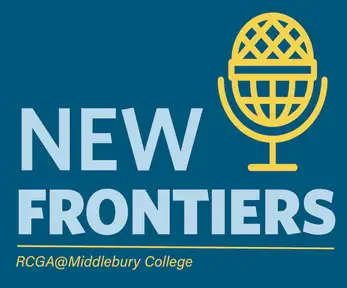China and the American Right
Joyce Mao, Associate Professor of History at Middlebury College, discusses her research and book, "Asia First: China and the Making of Modern American Conservatism," the first publication to look at the imprint of US-China-Taiwan relations upon the American Right after World War II.
“Asia First was an insistence that Pacific affairs receive as much, if not more attention than European Atlantic relations in the cold war. Its proponents, its supporters, many of whom were very powerful, conservative voices in the Senate and in Congress felt like U.S. foreign policy after World War II was neglecting mainland Asia and therefore imperiling the whole cold war.” — Joyce Mao
In this episode (2), Mark Williams, director of the Rohatyn Center, talks with Joyce Mao, Middlebury College associate professor of history, about the Asia First initiative and, in particular, the effects that US-China-Taiwan relations had on American domestic politics. Why were American conservatives so interested in Asia after WWII and in China particularly? In what ways, if any, did conservative concerns over China influence US foreign policy, and how did conservatives’ interest in China help shape the development of the political right in the United States? These are some of the issues examined in this New Frontiers episode "China and the American Right."
Joyce Mao’s book, Asia First: China and the Making of Modern American Conservatism, was published in 2015 by the University of Chicago Press.
Show Notes:
Presented by the Rohatyn Center for Global Affairs at Middlebury College.
Music Credits
In this episode (2), Mark Williams, director of the Rohatyn Center, talks with Joyce Mao, Middlebury College associate professor of history, about the Asia First initiative and, in particular, the effects that US-China-Taiwan relations had on American domestic politics. Why were American conservatives so interested in Asia after WWII and in China particularly? In what ways, if any, did conservative concerns over China influence US foreign policy, and how did conservatives’ interest in China help shape the development of the political right in the United States? These are some of the issues examined in this New Frontiers episode "China and the American Right."
Joyce Mao’s book, Asia First: China and the Making of Modern American Conservatism, was published in 2015 by the University of Chicago Press.
Show Notes:
Presented by the Rohatyn Center for Global Affairs at Middlebury College.
Music Credits
- Forte by Ketsa - Summer with Sound Album
- Soul Zone by Ketsa - Light Rising Album
Produced by Margaret A. DeFoor and Mark Williams.

